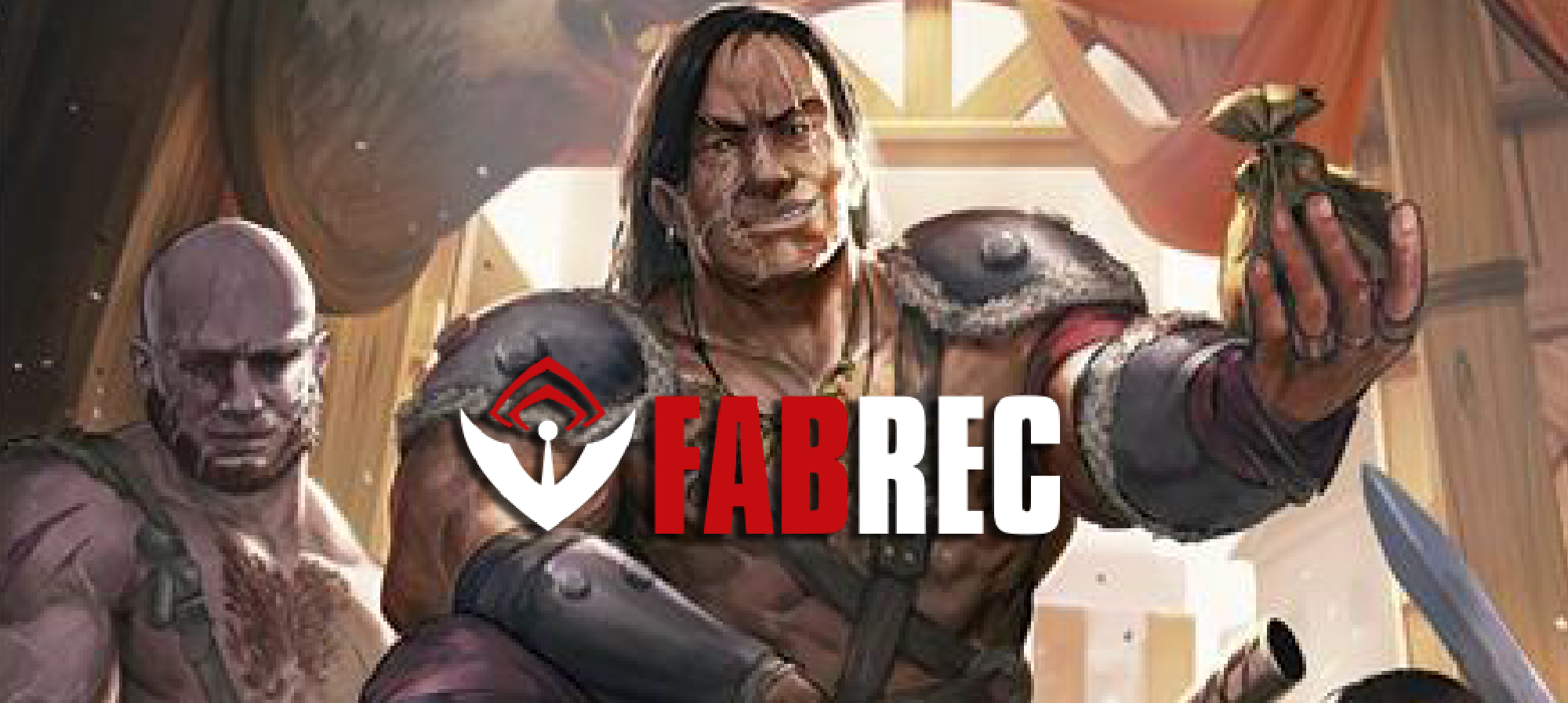Mind Games And Variability In Heavy Hitters

Heavy Hitters is my favorite limited set in a very long time, and one of the big reasons for that is – you guessed it – the abundance of variability it introduces. It does this in two distinct ways: mind games and randomness.
In a way, the reaction step already provides a layer of mind games inherent to Flesh and Blood. Having a dedicated window for messing with your opponent is a really underrated part of the game, even more so when the Warrior class is part of the set. But even the Guardians and Brutes get in on the action this time. And a smattering of generic cards with the wager keyword help to ensure that, if you care to, you can gamble with just about any hero that you want!
And I would argue that this is not just for the benefit of me and my fellow gambling addicts. An increased amount of avenues for bluffing are actually be a good thing for the player base of Flesh and Blood in general – even outside of limited.
Skill Issues With Variability
Bluffing and hidden information are a great way for designers to narrow the skill gap between players because of the uncertainty they introduce. Is my opponent floating that resource for a well-timed Razor Reflex or a Pummel or not? Do I play the turn “optimally” by blocking as much as I need to with the information I am given, or will I play around the attack reaction?
But wagering adds another layer onto this: first, by tying a possible face-up benefit to the attack, and one that you can claim for yourself. But to do so, you have to have cards left over at the start of your turn, or the Might, Vigor, or Agility token you just received will pop without providing you with anything to show for it. So they discourage overblocking, which further plays into the uncertainty surrounding reactions. Second, they make the mind game an explicit and outspoken part of the turn.
For a really basic example, let’s say that there is a lopsided match between two players. One is on Bravo, Showstopper and knows their deck inside and out. They block where they need to, capitalize on any window they’re given, and slowly grind away at the game until they have an insurmountable advantage.
But our underdog, who’s playing Olympia, Prized Fighter, attacks with a simple Wage Gold with a card in hand and a card in arsenal. Now, it might just be that they didn’t play their hand efficiently and are floating a card. But they could also be holding onto an Up the Ante for a massive blowout.
Giving the weaker player the ability to wager the Gold token with their opponent could make for a more convincing bluff and a possible inroad to taking back the tempo – and they might even do this totally by accident. Now, this is obviously an exaggerated example. And in the real world, skilled players are very good at calling bluffs, but they can never be totally sure.
Randomness Is Good, Actually
Another way that Heavy Hitters introduces hidden information into Flesh and Blood is the clash mechanic – which I’ve already sang my praises about previously. But one thing I didn’t touch upon in my last article was the fact that the inherent randomness in clashing can mean that there are now variables to consider beyond the given set of cards in each player’s hand. And that your cards can now end up giving your opponent a small advantage you maybe weren’t counting on.
For an extreme example, let’s go back to our hypothetical Bravo-Olympia matchup. But this time, our Bravo blocks with a Test of Strength and randomly reveals a Rouse the Ancients while Olympia reveals… well, just about anything else.
I’ve long said that one of the best and worst features of Flesh and Blood is its low variability. And while low variability is great for power gamers, it means that they quickly run out of more casual players to play with at the lower end of competitive events like Armories, as their victory is almost assured from the get-go.
Nobody wants FAB to turn into a slot machine, but I do enjoy the small ways in which the game designers nudge the game into allowing for less-skilled players to gain a foothold in an otherwise near-unwinnable game. But even if they lose anyway, that small moment of hope will stick with them and make them stick with the game.
Sharing The Fun With Variability
Let’s finish this essay with the best argument in favor of wagering and randomness: they’re fun! And Heavy Hitters allows entrenched players to lean into the fun aspect with a dedicated, less-competitive deck. Because that’s the greatest thing about this new set of cards and mechanics joining the established FAB card pool: no matter what the other player is running, one deck with wager and clash cards will ensure that both players get to play the little minigames they provide.
I for one have hung up my well-worn Bravo, Showstopper deck and picked up a Good Time Chapeau to wade into battle with Betsy, Skin in the Game at my next Armory. And I’m going to be packing as many cards that wager and clash as I can possibly fit into my list. It may not be optimal. But it is fun.
Further Reading:
Is Flesh and Blood Worth Playing at a Casual Level?